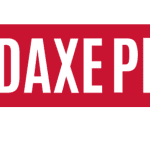The History of Betting: Exploring the origins and evolution of the betting industry
The practice of betting can be traced back to ancient civilizations, where people placed wagers on various outcomes in sporting events, competitions, and even political decisions. In ancient Greece, for example, betting was prevalent in the Olympic Games, with spectators placing bets on their favorite athletes. Similarly, the Romans engaged in various forms of gambling, including betting on gladiatorial fights. Throughout history, betting has been ingrained in human culture, serving as a form of entertainment and an avenue for individuals to test their luck and skill.
Over time, the betting industry has evolved significantly. From its humble beginnings in ancient civilizations, it has grown into a global phenomenon, incorporating a wide range of sports and events. The introduction of organized horse racing in the 17th century marked a turning point for the industry. It provided a structured platform for betting and attracted a larger audience. As time went on, the industry expanded further, incorporating popular sports such as football, basketball, and cricket, among others. The advent of technology, particularly the internet, has revolutionized the betting industry, making it more accessible and convenient for enthusiasts worldwide. Today, online betting platforms offer a wide array of betting options, allowing individuals to place wagers on sports, casinos, and other events from the comfort of their own homes.
Different Types of Bets: Understanding the various types of bets available for betting enthusiasts
When it comes to betting, there is a wide range of options available for enthusiasts. One of the most common types of bets is the straight bet, where you simply pick a team or player to win. This is a straightforward bet that offers a simple yet exciting way to test your luck.
Another popular type of bet is the point spread bet. In this bet, the sportsbook will assign a point spread to the favorite team in order to even out the odds. For example, if the point spread is -7, the favorite team must win by more than 7 points for the bet to be successful. On the other hand, if the point spread is +7, the underdog team can either win the game or lose by less than 7 points for the bet to be a winner. Point spread bets are particularly popular in sports like football and basketball as they add an extra element of excitement to the game.
Popular Betting Markets: Exploring the most popular sports and events for betting
In the world of betting, there are certain sports and events that attract a tremendous amount of attention from betting enthusiasts. Football, or soccer, is undoubtedly one of the most popular sports to bet on. With its global appeal and numerous leagues and tournaments, football offers a wide range of betting opportunities. Whether it’s the English Premier League, the UEFA Champions League, or the FIFA World Cup, fans of the beautiful game can find a multitude of markets to place their bets on.
Another popular sport for betting is horse racing. Known for its thrilling races and unpredictable outcomes, horse racing provides an exhilarating experience for both avid bettors and casual fans. From prestigious events like the Kentucky Derby and the Grand National to smaller race meetings around the world, horse racing offers a variety of bet types, including win, place, and each-way bets. The combination of strategy, skill, and luck makes horse racing an attractive option for those looking for an exciting betting experience.
As we delve further into the world of popular betting markets, we will explore other sports and events that captivate bettors’ attention. Stay tuned to discover the multitude of opportunities awaiting those who wish to engage in the thrilling world of sports betting.
Understanding Odds: A beginner’s guide to understanding how odds work in betting
When it comes to betting, understanding how odds work is essential. Odds represent the probability of a particular outcome in a sporting event. They also determine the potential payout that can be won from a successful bet. In most cases, odds are presented in three different formats: fractional, decimal, and American. Each format has its own way of representing the likelihood of an outcome, and it’s important for beginners to be familiar with all three.
In fractional odds, such as 2/1, the first number represents the potential profit that can be made from a winning bet, while the second number represents the amount that needs to be staked in order to make that profit. For example, a £10 bet placed at odds of 2/1 would result in a £20 profit if successful.
Decimal odds, on the other hand, represent the total amount that would be returned on a winning bet, including the original stake. For instance, odds of 3.00 would mean that a £10 bet would result in a total return of £30, including the initial £10 stake. Decimal odds are the most popular format in Europe, as they are straightforward and easy to understand.
Finally, American odds are often used in the United States and Canada. In this format, positive odds indicate how much profit can be won from a $100 stake, while negative odds indicate how much needs to be wagered in order to win $100. For example, odds of +200 would mean a $100 bet can result in a profit of $200, while odds of -200 would require a $200 bet to win $100.
Understanding odds is crucial for any bettor, as it allows them to calculate potential winnings and make informed betting decisions. By familiarizing themselves with the different odds formats and their implications, beginners can navigate the complex world of betting with confidence.
Choosing a Reliable Betting Platform: Tips for selecting a trustworthy and secure betting platform
When it comes to choosing a betting platform, it is crucial to prioritize trustworthiness and security. With the growing number of online betting platforms available, it can be overwhelming to decide which one to choose. One tip is to look for platforms that are licensed and regulated by reputable authorities. These licenses ensure that the platform is compliant with industry standards and regulations, giving you peace of mind while placing your bets. Additionally, it is important to consider the platform’s security measures, such as encryption technology and firewalls, to protect your personal and financial information.
Another factor to consider when selecting a reliable betting platform is the range of payment options available. Look for platforms that offer a variety of secure and convenient payment methods, such as credit cards, e-wallets, and bank transfers. This ensures that you have flexibility in funding your betting account and withdrawing your winnings. It is also worth checking if the platform offers quick and hassle-free transactions, as delays in payments can be frustrating. By choosing a platform with a wide range of payment options and efficient payment processing, you can have a seamless betting experience.















